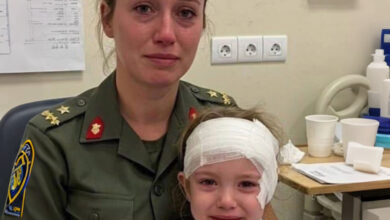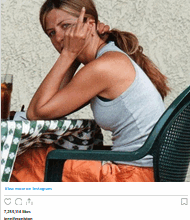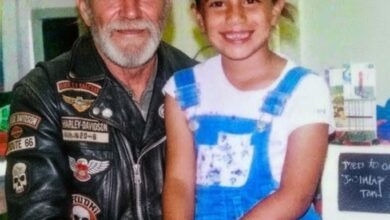
A Difficult First Experience and the Call for Better Health Education!
People often say that your first meaningful step into adulthood is unforgettable. For some, that memory is tied to joy, nervous laughter, or the awkwardness of navigating something new. For me, the memory is something else entirely. What should have been a private milestone became a nightmare marked by panic, tears, and flashing hospital lights. Instead of warmth or closeness, I was left with fear and a lesson that continues to shape how I see health, relationships, and education.
The truth is, no one should have to remember their first experience the way I do. And yet, my story is not about seeking sympathy. I share it as a warning, a reminder of what can go wrong when young people grow up without clear guidance. What happened to me was not random—it was the result of a gap in education, silence in conversations, and myths that left me completely unprepared. My pain is proof of why comprehensive health education, covering not just biology but also safety, communication, and emotional readiness, is essential. Knowledge is not a luxury; it is the difference between a safe memory and a traumatic one.
Culture often dresses up first experiences with stereotypes—sometimes they are framed as exciting, sometimes as awkwardly funny, and sometimes as deeply romantic. Rarely do we talk about what happens when things go very wrong. The reason is simple: silence. In many families and communities, real discussions about health, anatomy, and personal well-being are avoided or pushed aside. Young people are left to piece things together through gossip, rumors, or misleading media portrayals. When complications arise, they don’t just face physical pain but also confusion, shame, and fear.
In my case, the consequences were severe. What began as an attempt to step into adulthood quickly turned into a medical emergency. I ended up with an injury that doctors later told me could have been prevented with even basic preparation and awareness. Instead of privacy, I found myself surrounded by nurses and doctors working quickly to stabilize me. The images of stained sheets, panicked whispers, and rushed hospital corridors are burned into my memory. It was an introduction to adulthood that no one deserves.
The physical wounds healed eventually, but the emotional damage lingered much longer. For weeks afterward, I felt haunted by the experience. I kept replaying it in my mind, asking myself what I had done wrong, what I should have known, and why no one had ever told me what to expect. I felt embarrassed, even ashamed, though none of it was my fault. Instead of connecting intimacy with trust or closeness, I began to associate it with danger and fear. My confidence was shaken, and for a long time, I struggled to trust myself in future relationships.
This is the hidden cost of silence: not just physical harm, but emotional scars. Too often, health conversations focus only on avoiding pregnancy or disease. They leave out equally critical elements—emotional readiness, consent, communication, and the importance of self-care. These things matter just as much as anatomy.
What could have made the difference? Comprehensive, honest education. Proper health education should not be limited to warnings and scare tactics. It should include clear, age-appropriate lessons on anatomy, realistic expectations, open communication, and how to recognize when something isn’t right. It should also address emotional preparedness and respect—lessons that go beyond biology to prepare people for the human side of intimacy. Had I received that kind of education, I might have avoided the ordeal that still shapes me today.
Part of the problem lies in the myths that young people are forced to grow up with. One of the most damaging is the belief that “the first time must always hurt.” That is not true. Discomfort may happen, but severe pain or trauma should never be considered normal. Another harmful myth is that preparation doesn’t matter—that people simply figure it out as they go. In reality, being informed and prepared makes all the difference. Too often, the focus is only on pregnancy prevention, as if that is the only risk. But health and safety go far beyond that, covering injuries, infections, and emotional harm. The biggest myth of all is that everyone simply learns through trial and error. Trial and error, when it comes to health, is not education—it is gambling with people’s well-being.
The consequences of poor education are global. In countries where health education is open, science-based, and destigmatized, young people tend to feel more confident, make safer choices, and develop healthier relationships. In countries where silence or fear dominates, the risks are much higher. Without reliable guidance, people turn to the media or to peers, who are often just as misinformed. The result is a cycle of confusion and preventable harm.
Families have a critical role to play as well. While schools can provide structured education, the home is where young people should feel safe asking questions and receiving honest answers. Too many parents believe that silence is protection. In reality, silence leaves children unprepared and vulnerable. These conversations should begin early and grow more detailed over time, handled with compassion and honesty.
Recovering from what I went through required more than physical healing. I had to learn self-compassion, to rebuild my confidence, and to separate my identity from the trauma I experienced. What helped me most were follow-up medical appointments to reassure me physically, support from friends who reminded me I was not alone, journaling to process my emotions, and counseling to rebuild my self-esteem. Recovery looks different for everyone, but one thing is universal: shame must never be part of it.
If society truly wants to protect young people, then we must do better. That means pushing for comprehensive education in schools, encouraging parents to break the silence, normalizing medical checkups when something feels wrong, and recognizing that emotional well-being is as important as physical safety.
For anyone approaching their first experience, or guiding someone else toward theirs, a few principles stand out. Communicate openly and honestly with your partner. Move at your own pace—there is no “right age” or “right moment.” Learn about your body before stepping into something so important. Prioritize safety, comfort, and respect. And above all, know that if something feels wrong, medical help is not something to be ashamed of.
My first experience was not what I had hoped for. It was frightening, and it left me scarred in ways I had to spend years undoing. But it also gave me purpose. By sharing my story, I hope others can avoid the mistakes I made. No one should have to remember a milestone through tears, hospital visits, and shame. With knowledge, preparation, and compassion, we can create a world where first experiences are safe, respectful, and remembered for the right reasons.




